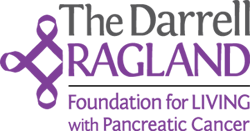The exact causes of pancreatic cancer are not yet well understood. Research studies have identified certain risk factors that may increase the likelihood that an individual will develop pancreatic cancer. The following table describes some of the risk factors associated with pancreatic cancer.
| Risk Factor | Description |
| Smoking | Smoking is a significant risk factor and may cause about 20-30% of all pancreatic cancer cases. People who smoke cigarettes are 2 times more likely to develop pancreatic cancer than people who do not smoke. |
| Age | The chance of developing pancreatic cancer increases with age. Most people diagnosed with pancreatic cancer are over the age of 60. |
| Family History | If a person’s mother, father, sibling, or child had pancreatic cancer, then that person’s risk for developing the disease increases by 2-3 times. The risk increases if a greater number of family members are affected. Also, the risk of pancreatic cancer increases if there is a history of familial breast or colon cancer, familial melanoma, or hereditary pancreatitis. Approximately 10% of pancreatic cancer cases are related to a family history of the disease. Individuals who smoke and have a family history of pancreatic cancer are at risk of developing pancreatic cancer up to 10 years earlier than their previously diagnosed family member(s). |
| Chronic Pancreatitis and Hereditary Pancreatitis | People with chronic pancreatitis have an increased risk of developing pancreatic cancer. Chronic pancreatitis is common in individuals who consume large amounts of alcohol for many years. The mumps virus and various autoimmune disorders can also cause chronic pancreatitis.Hereditary pancreatitis causes recurrent episodes of inflammation of the pancreas that generally start by the time a person is 20 years old. The risk of developing pancreatic cancer is even higher in individuals who have hereditary pancreatitis. |
| Race (Ethnicity) | African-Americans have a higher incidence of pancreatic cancer compared to individuals of Asian, Hispanic or Caucasian descent. There is also a higher incidence of pancreatic cancer among Ashkenazi Jews, possibly due to a mutation involving the breast cancer (BRCA2) gene that is found in about 1% of individuals of this background. |
| Gender | Slightly more men are diagnosed with pancreatic cancer than women. This may be linked to higher smoking rates in men. |
| Diabetes | Pancreatic cancer is more likely to occur in people who have long-standing (over 5 years) diabetes. Research studies suggest that new-onset diabetes in people over the age of 50 may be an early symptom of pancreatic cancer. A sudden change in blood sugar levels in diabetics who previously had well-controlled diabetes may also be a sign of pancreatic cancer. |
| Diet | The association of diet and the development of pancreatic cancer is still unclear. A diet high in red and processed meats is thought to increase the risk of developing pancreatic cancer. A diet high in fruits and vegetables may decrease the risk. |
| Obesity | Obese people have a 20% increased risk of developing the disease compared to people who are of normal weight. The risk is even higher in people who are obese during early adulthood. People with excessive abdominal fat may have an increased risk independent of general obesity.
|


